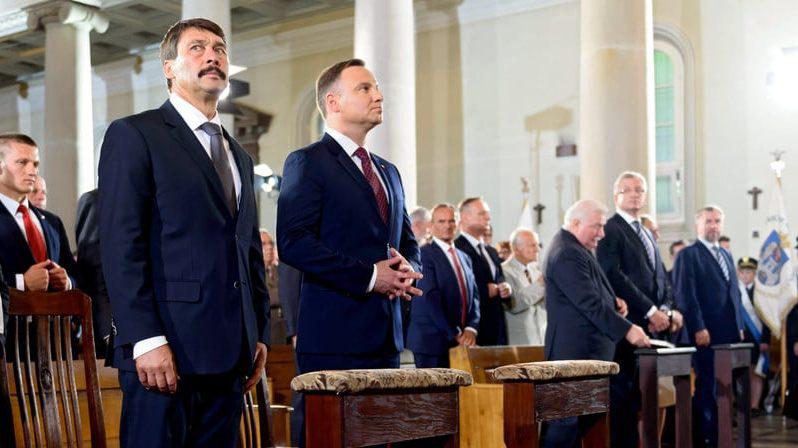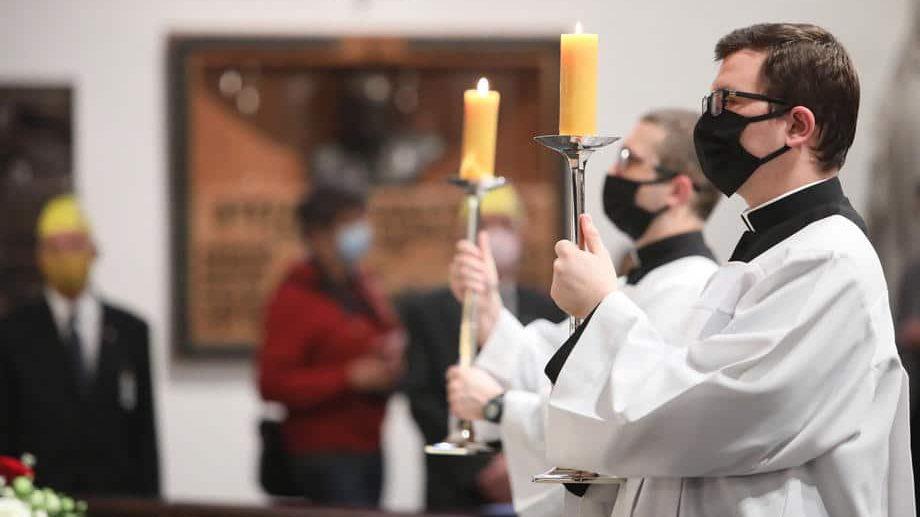|
Poles Lose Faith as PiS Drives Politicisation of Church
By Dariusz Kalan
Distrust of the Polish Catholic Church’s takeover of many aspects of life, its inability to handle internal scandals, and the discord between conservative dogma and some priests’ ostentatious wealth are driving many Poles away.
Now, asked the most fundamental question about whether God exists, Rogalski, after a while and with some hesitation, replies: “It would be nice if he did.” In July, it will be two years since this former fervent believer undertook an apostasy – an act of formal disaffiliation from religion, seen as a major sin by Catholic dogma – but is only now prepared to talk about it, following last year’s mass protests against the tightening, with the church’s backing, of the abortion law. In his case, leaving the church and faith has been spread over years. Yet what ultimately weighed the scales in favour of apostasy were reports on the scale of clerical child abuse and the cover-ups of it, as well as the church’s tight alliance with the ruling right-wing Law and Justice (PiS) party. “As a person recognised by many as a Catholic, I decided I don’t want to be associated with all these disgusting things from our social life related to Catholicism,” Rogalski commented. In Poland, where 92 per cent of people identify as Catholic, national celebrations are accompanied by mass and a crucifix is visible in many public spaces, apostasy has traditionally been rare: in fact, the Institute of Catholic Church Statistics (ISKK) stopped investigating it in 2010, when just 459 people were recorded as having left the church – a tiny number for a country of nearly 38 million people, 32.5 million of whom are baptised. Now, alarmed by signs that growing numbers are abandoning the religion of their childhood, the ISKK plans to start again collecting data on what seems to be a recent phenomenon. “We would like to investigate it, but it largely depends on whether the dioceses will provide us with statistics,” Wojciech Sadlon, the ISSK director, told BIRN. Some of these signals were captured by CBOS, a polling agency, whose report in mid-December found that 47 per cent of respondents now have a negative opinion of the church. And that, combined with the 41 per cent with a positive view, made the church’s critics the majority for first time since 1993. Another poll found that, among young people, just 9 per cent regard the church positively. Piotr Sikora, a Roman Catholic theologian and philosopher, speculates that people feel tired watching a combination of the church’s takeover of many aspects of Polish life, the discord between conservative dogma and some priests’ ostentatious wealth, and the church’s inability to handle its internal scandals – developments that are increasingly obvious under PiS.
Political allies
The church, with its strong influence in the countryside, has helped PiS mobilise its mainly rural base, often openly backing the party before elections and offering space in churches for political speeches by PiS leaders. The Catholic clergy has also become an essential ally of PiS in its anti-LGBT agenda, which in recent election campaigns featured as the party’s core message. “Local priests became even more demonstrative in their support to PiS than bishops,” Sikora commented. The crucial concern, he explained, is that too many priests who don’t agree with this development remain silent. “Internal tensions within the church are high. But there is a rule not to criticize each other, so usually only one voice, more extreme, is heard in public.” For many members of the church, the political turn is simply too hard to resist. Under PiS, the church has become a beneficiary of taxpayer funds through various government programs, and was offered a significant say over education, culture and delicate social issues, including the abortion law, which last autumn was tightened by the PiS-controlled Constitutional Tribunal. In Poland, many still associate the church with Pope John Paul II and his resolute resistance to communist rule. With that heritage in mind, all the political parties since 1989, from both left and right, have endeavoured to meet the church’s demands, which included exemptions from some taxes, the restitution of property confiscated by communists, limiting access to abortion and introducing religion into public education. Yet, under PiS, this relationship became co-dependent to the point where “we have come to the absolute clinch when the church is no longer concerned with the teachings of Jesus, but only with politics and money,” said Agata Diduszko-Zyglewska, a left-wing activist and co-founder of Apostasy Counter, a website gathering together people who have left the church. She herself undertook apostasy in 2018, but it was 2020 that appears to have been a turning point for many. Two documentary films, “Hide-and-seek” and “Don Stanislao”, uncovered dishonest practices by high-level bishops, which involved various actions to protect alleged perpetrators of sex abuse and a failure to protect victims. The church’s behaviour over the COVID-19 pandemic hasn’t helped its cause either: at the height of the pandemic, bishops refused to close churches, while priests often spread coronavirus misinformation and have backed anti-vaccination messaging. Then there was the near-total ban on abortion, which came into force on January 27 when the Constitutional Tribunal ruling was finally published. “They went one step too far,” said Diduszko-Zyglewska, referring to the abortion ban. “People have finally realised how corrupt and immoral the Catholic Church is.”
Apostasy in practice
In one of many parishes in Warsaw, BIRN met with a priest who agreed to talk anonymously. He told BIRN that typically in his parish there has been one apostasy a year or even less; this winter, there were as many as three in one week. In order to undertake apostasy, he explained, one needs to go in person to their parish with a baptismal certificate, ID card and three signed copies of a declaration stating their intent to leave the church with a reason. “Applicants need to write down a justification – in one case a man wrote that his worldview doesn’t match the teachings of the Catholic Church, and cut off the discussion immediately. I respected that,” the priest said. “For us, each such case is a tragedy.” Asked about political involvement and sex abuse cases, he replied: “It’s definitely not pleasant… I feel such a burden that all the priests are put into one bag… I personally didn’t do anything wrong.” He admitted to having been called a “paedophile” several times, including by a godfather-to-be who was angry for being refused a godparent certificate. “I want to understand the pain of these people. But when you stay within the church, you at least have the opportunity to change something,” the priest commented firmly. “The church will not become better due to apostasies.”
|
.
Any original material on these pages is copyright © BishopAccountability.org 2004. Reproduce freely with attribution.

